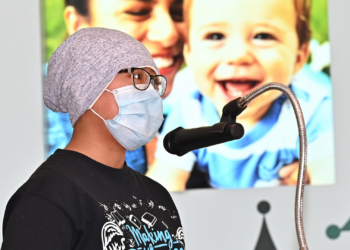What we read as children influences our worldview and biases for the rest of our lives. In every picture book or magazine, there are lessons to be learned, and ideas about the world to be absorbed. This is why Mighty Kind’s mission is so important: they are the world’s leading anti-bias magazine for kids, and their work teaches young people about cultural acceptance, world traditions, and acts of service.
With beautiful artwork and thoughtful storytelling, Mighty Kind would fit perfectly into any kids’ bookshelf as an important cornerstone of their cultural education. Comics, poems, and activities make the magazine an interactive experience for young readers, encouraging them to think more deeply.
We spoke with the wonderful Nadine Fonseca, Co-Founder and Managing Director of Mighty Kind to gain insight into what makes Mighty Kind tick behind the scenes, and what kindness means to her.
Hi Nadine! It’s lovely to speak with you. To start off, can you tell us what the mission of your company is, and how Mighty Kind defines anti-bias learning?
Mighty Kind is a magazine created to inspire a global community of kids who care. We celebrate world cultures, share big ideas in personal development, and work toward making the world a better place, one act of kindness at a time. We focus on kindness and compassion as a foundation for anti-bias learning and conversations while aiming to provide a platform for diverse voices and perspectives.
Each issue of our 64-page publication is full of illustrated stories, fun activities and actionable volunteer opportunities to empower kids to tap into their natural capacity to love and learn while having fun. Our high-quality, quarterly publication is geared toward children and the grown-ups who mentor them.
Mighty Kind is the only anti-bias education magazine in the world! There is literally no other publication in circulation that helps children look at contextualized diversity in all its forms with the aim to understand and respect differences and not just grope around for the things we have in common to forge an immediate, but likely superficial, connection. We can do better than that with our children!
What was your inspiration to start Mighty Kind?
When we moved our family and landed in an area with significantly less diversity, I felt the very real weight of responsibility to ensure my children had as many opportunities to experience and explore cultures, languages, foods, and experiences different from their own daily life. I didn’t want “different” to equal “strange” or any other negative in their internal dialogue.
Perhaps this will always be an initial reaction (it is human nature to reject or protect ourselves from things we don’t yet understand, right?), but my goal is to foster cultural curiosity so they will be open to learning more and understanding better. I also looked for some curriculum to help support these efforts, but came up short as so much focus was on finding commonalities and I wanted to focus on seeing differences as opportunities.
Ultimately, I decided I needed to take matters into my own hands and develop it myself. I wanted to know if other caregivers were looking for something along these lines, so I sent out a survey. I was able to reach over 500 parents and caregivers in 22 different countries! Overwhelmingly, the feedback was that they were seeking resources to help children develop empathy and to find service projects for younger hands to flex their muscles in community giveback. Mighty Kind was born!
Through these challenging times, what resources does Mighty Kind provide for kids, caregivers, and teachers?
We develop a content framework that prioritizes space for diverse own-voice perspectives and stories, we consult with an ABAR (anti-bias/anti-racist) education expert who helps us incorporate higher-level learning practices. We seek out representative members of each culture we feature to ensure due diligence and respectful representation, we collaborate with historian scholars to present decolonized, honest historical context.
We team up with professionals like behavioral physiologists, marriage and family therapists, social workers, early childhood education specialists, and the like to develop adult resources, and we enlist sensitivity readers to beta read each issue for feedback before going to print.
Mighty Kind is now in several elementary schools and public libraries across the United States and has been used as a social studies, anti-bias, and social-emotional curriculum supplement in both traditional classrooms and homeschool settings alike. It is not sufficient as a stand-alone curriculum, but is a wonderful starting point for meaningful discussions and putting learning into practice.
At Be Kind & Co, kindness equals strength. We also believe kindness is the future. How is Mighty Kind encouraging intentional acts of kindness, and how can we start?
To us, “kindness” means stretching ourselves in some way to listen and empathize with others and being “mighty” is engaging in selfless action. It is an intentional effort to better someone else’s world, whether that’s for a moment or for generations to come. Kindness is rarely convenient. That’s why with Mighty Kind, we shy away from promoting “random acts of kindness” for kids and instead put empathy and service on the forefront of their minds so they can plan to incorporate kind acts into their daily lives.
Random acts are great! But why not be proactive in addition to seizing opportunities as they present themselves. The hope is that by doing this, being kind and serving others will become second-nature as children grow up. We can start by learning about others, their lived experiences, and work toward being good listeners and empathizers!
What impact do you hope Mighty Kind makes in our communities? How does being kind influence that goal?
We hope homes and classrooms put Mighty Kind to work exposing kids to incredible cultures, traditions, stories, lessons, and people from around the world. We hope the grown-up section of the magazine lends itself to helping facilitate meaningful discussions and exercises. We hope kids lean into the “Big Idea” topic in each issue and develop a positive sense of self and strong moral character as they focus on personal growth. But mostly, we hope engaging with Mighty Kind is just a small piece of a larger effort to learn, to grow, to speak up, and activate against racism and bias worldwide.
Over time, kindness has devolved into acts of compliance, performance, and self-aggrandizement devoid of actual purpose or human connection. While smiles and hugs are lovely sentiments and always a helpful start, the world needs a new kind of kind right now. We invite people everywhere to radicalize kindness with us! Within each of us is the capacity to learn more, listen more, and invest effort in doing more. Remember, the “Mighty” in Mighty Kind means taking action. The children in our lives are ready to be activated along with us!
You can learn more about Mighty Kind at mightykindkids.com. Want more inspiration for your kids? Help your child learn about kindness with these 9 books.
















